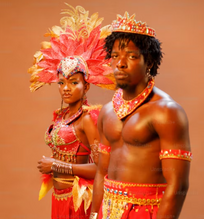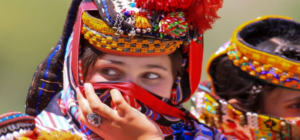Who Are the Pygmy Peoples?
Apart from this term”Pygmy” is used to refer to a wide range of ethnic groups that are identified by their small stature. Following exact origins of this trait are still debated. at this time believed to be an adaptation to specific environmental factors such as dense forest habitats.
Key Characteristics of Pygmy Peoples
- Short Stature: Obviously majority of defining characteristics of Pygmy people is their unusually short stature. Adult males typically average less than 150 cm (4 ft 11 in) in height.
- Hunter-Gatherer Lifestyle: Along with Pygmy groups traditionally rely on hunting and gathering for subsistence Showcasing a deep connection to their natural surroundings.
- Forest-Dwelling: Apart from this these groups often inhabit dense forests. where they have developed intricate knowledge of the ecosystem and its resources.
- Unique Cultural Practices: Apart from this Pygmy cultures are diverse with differences in religious convictions and practices of language. However, they share common threads. Such as oral traditions music and intricate social structures.
Pygmy Peoples A Study of Central African Pygmies
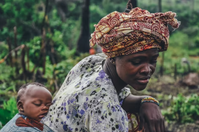
As well as that most well-known is perhaps the Pygmies of Central Africa. Which include tribes like the Baka and Mbuti Aka. These forest-dwelling people have faced numerous challenges. Moreover Including encroachment on their lands. As well as the Exploitation of resources and cultural erosion.
A Glimpse into Their World
Picture living in balance with the forest: More Pygmies have a profound understanding of the intricate balance of nature. Also, rely on their keen senses and intimate knowledge of the environment to survive. Besides this hunting with bows and arrows gathering wild fruits and roots and constructing temporary shelters from natural materials.
Threats to Pygmy Cultures
- Despite their resilience: Also pygmy people face significant threats to their way of life.
- Deforestation: Apart from this relentless destruction of forests for timber agriculture. Additionally, mining has expanded. Upon their traditional lands disrupting their livelihoods and cultural practices.
- Exploitation: Also pygmies are often marginalized and exploited by outsiders. More may take advantage of their limited knowledge of legal systems and their reliance on forest resources.
- Cultural Assimilation: Also pygmy customs and languages may be eroded.The above all result of the impact of dominant cultures. Younger generations may adopt mainstream lifestyles.
Preserving Pygmy Heritage
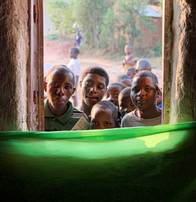
Efforts are underway to protect Pygmy cultures and their environments. These initiatives include:
- Community-Based Conservation: Moer over empowering Pygmy communities to manage their own resources and participate in conservation efforts.
- Education and Awareness: Raising awareness about Pygmy peoples and their challenges through education and outreach programs.
- Legal Recognition: Advocating for the recognition of Pygmy land rights and cultural heritage.
- Sustainable Development: Promoting sustainable development practices that respect the rights and livelihoods of Pygmy communities.
Pygmy people are a vital part of our global heritage. Their unique cultures deep connection to nature and resilience in the face of adversity inspire us to appreciate the diversity of human experience. by understanding and supporting these indigenous groups. We can contribute to their preservation and ensure that their voices are heard.
Expanding the Narrative A Deeper Dive
While the above provides a general overview of Pygmy peoples there’s much more to explore. Let’s delve deeper into specific groups and their unique stories:
The Ituri Forest’s guardians The Mbuti Pygmies
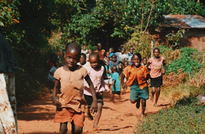
The Mbuti inhabiting the dense Ituri Forest in the Democratic Republic of Congo are one of the most well-known Pygmy groups. Their profound understanding of the forest environment is amazing. They use poison darts to hunt small game and traps to catch larger animals. Their music particularly their polyphonic singing is renowned for its complex rhythms and harmonies.
The Aka Pygmies Masters of Exchange
The Aka found in the Central African Republic and Cameroon have a unique social structure centred around kinship and reciprocity. They are skilled hunters and gatherers but are also known for their trading relationships with neighbouring Bantu-speaking farmers. This exchange network allows them to access essential goods like iron tools and agricultural products.
The Baka Pygmies Keepers of Ancient Traditions
The Baka inhabiting the rainforests of Cameroon and the Republic of the Congo are renowned for their rich musical traditions. Their polyrhythmic drumming and singing are integral to their cultural identity. They also have a deep spiritual connection to the forest believing in ancestral spirits and animistic beliefs.
Challenges and Threats
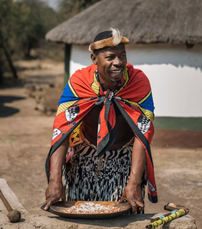
Pygmy people face a myriad of challenges that threaten their survival and cultural integrity.
- Deforestation and Habitat Loss: The relentless destruction of forests for timber agriculture and mining. Has significantly reduced their habitat and disrupted their traditional way of life.
- Exploitation and Marginalization: Pygmies are often marginalized and exploited by dominant groups. Who may take advantage of their limited knowledge of legal systems and their reliance on forest resources?
- Cultural Assimilation: The influence of dominant cultures. Can lead to the erosion of Pygmy traditions languages and spiritual beliefs.
- Climate Change: Climate change is altering forest ecosystems impacting the availability of food and water for Pygmy communities.
Conservation Efforts and the Future

To protect Pygmy cultures and their environments various conservation efforts are underway
- Community-Based Conservation: Empowering Pygmy communities to manage their own resources and participate in conservation initiatives.
- Education and Awareness: Raising awareness about Pygmy peoples and their challenges through education and outreach programs.
- Legal Recognition: Advocating for the recognition of Pygmy land rights and cultural heritage.
- Sustainable Development: Promoting sustainable development practices that respect the rights and livelihoods of Pygmy communities.
The future of Pygmy peoples is uncertain but with concerted efforts to address the challenges they face. We can help ensure their survival and cultural continuity. By understanding and appreciating their unique cultures and contributions to human history. We can work towards a future where Pygmy people thrive and their voices are heard.
